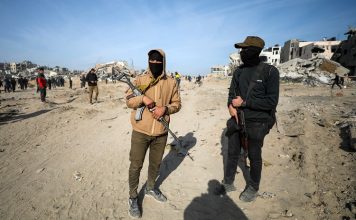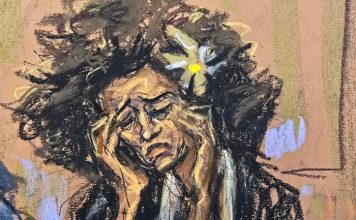By Firouzeh Nabavi
Aila Navidi, an Iranian playwright and director, has won two of France’s most prestigious stage awards, the Molières, for her directing of a play she also wrote, “4211 km.” The play is coming back to the Studio Marigny theater in Paris from Sept. 12.
Navidi won the award for best director of privately funded theater at the 35th “Nuit des Molières” ceremony in Paris on May 6.
Her play won another award: for Best Female Newcomer (attributed to Olivia Pavlou-Graham). It had been nominated for four awards.
Les Molières are the equivalent of the American Tony Awards and the British Olivier Awards, and are awarded for excellence in French theater.
“4211 Km” is the fragmented story of Aila Navidi, a child born in exile who longs to return to her homeland, one she has never seen.
View this post on Instagram
Navidi – an author, director and actress — was born in France to Iranian political refugees. Her journalist father and her philosophy teacher mother had fled Iran after the 1979 Iranian Revolution. Aila was born in Paris four years later, and grew up in a studio apartment in the 13th arrondissement, speaking Farsi in a home in which exile was necessarily temporary.
After graduating from business school, Navidi worked as a consultant in television and film before leaving the industry to set up a performing arts association, La Compagnie du Nouveau Jour, in January 2023.
View this post on Instagram
She wrote the play after the birth of her daughter. It made her wonder about her Persian heritage and what would be left of it after the passing of her parents.
In a recent interview with France Inter radio, Navidi said that she asked herself what she was going to leave behind for future generations and that led her to write this play: to leave a mark.
“I grew up with the idea that we had come to France and put down our suitcases while waiting to return to our homeland. At no point did my parents’ generation think that [Ayatollah Ruhollah] Khomeini was going to stay. They were still driven by the 1979 revolution, and we’ve been waiting for this return to the homeland that we’re still waiting for.”
In an interview with the France 24 network last June — before the play’s staging at France’s renowned Avignon theater festival — Navidi noted that the play was 90 percent autobiographical.
“It’s my story,” she said. “The only thing I wanted to do with this play is not give the name of my family and myself to the character, because I think that to a large extent, a lot of people living in exile are living the same story.”
The title of the play, “4,211 Km,” is the distance between Paris and Teheran. It is the distance covered by Mina and Fereydoun, the characters playing the role of Aila’s own parents: an Iranian couple seeking refuge in France following the 1979 Revolution.
The couple were left-wing activists who had taken part in the Revolution against the Shah in the 1970s and who, when Iran became an Islamic Republic, joined the fight against repression by the Khomeini regime, and were forced to flee Iran to become political refugees in France.
In the play, the story of their life in exile, their fight for freedom, their love of the homeland and their hope of return is told by their daughter Yalda, born in Paris in 1981. Yalda has just become a mother and wants her child to bear her own last name and that of her husband. But Edouard forgets to register both names at the town hall, upsetting Yalda who views her name as an important link with her family’s history and her daughter’s roots.
Navidi pointed out that she wrote this story at a key moment in her life – the birth of her daughter with her French partner – and “there was this double culture that had to be passed on.”
She needed to leave a trace of her parents’ story and their struggle. “It is pretty hard to see your parents grow old and fight for freedom for 40 years,” she added. “I wanted to tell their story so they wouldn’t be forgotten.”
It has been 45 years since the 1979 revolution and for Navidi, it’s not over yet. “There’s a whole continuum of people fighting,” she said. “My parents are one of them, but there have been many others behind them, and there is a real need to leave a legacy and to ensure that negationism does not take its place in history.”













